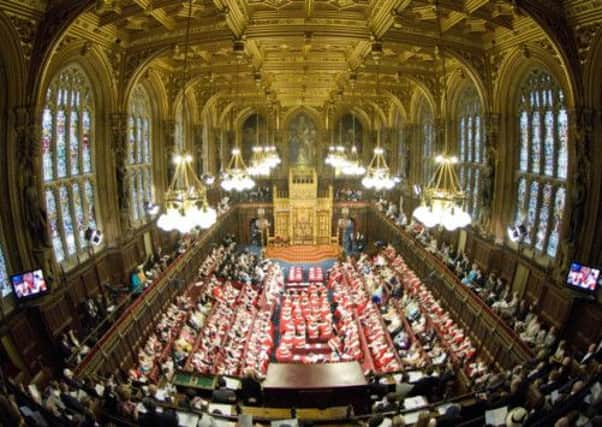Queen’s Speech: Academics question exam reforms


There is no clear evidence to support ministers’ claims that exam standards in England have fallen, according to a new report by Oxford University Centre for Educational Assessment.
The new study looked at international test scores over 16 years, as well as existing education research, to analyse England’s results over time.
Advertisement
Hide AdAdvertisement
Hide AdIt found that there had been no decline in England’s scores on one major international test - the Trends in Mathematics and Science Study (TIMSS) - with the 2011 TIMSS report showing that England was in the top 10 for maths among nine and 10-year-olds and in the top 10 for maths and science among 13 and 14-year-olds.
A second well-known international survey - the Programme for International Student Assessment (PISA) - showed that England’s scores are close to the average for countries covered by the Organisation for Economic Cooperation and Development (OECD).
Oxford’s study did note that according to the TIMSS tests, England has a wider range of high and low achievers compared with other nations.
It concludes that evidence for grade inflation is “mixed”.
“Good data on the causes of rises over time in GCSE grades are not available,” the report says.
Advertisement
Hide AdAdvertisement
Hide Ad“Some of the possible causes, like better teaching and more student effort, could be legitimate, but others, such as easier examinations and teaching to the test would undermine the currency of the examinations.”
It says that while there is some evidence that pupils with the same scores on general ability tests got higher GCSE grades in 2010 than in 1996, this could be down to falling exam standards, improvements in standards or a mixture of both.
“Overall, research evidence does not point to a general pattern of decline in cognitive demand of examination questions,” the report says.
The academics suggest that raising the level of demand in exams will not increase achievement by itself.
Advertisement
Hide AdAdvertisement
Hide AdAt the moment, around two in five teenagers do not score at least five Cs at GCSE, including English and maths, the report says, and if exams were made harder, more students will fail to reach this target.
It adds that closing the gap between low and high achievers is one way that countries have raised their performance in international tests.
Oxford’s report comes on the day that the Queen’s Speech confirmed the government’s plans to overhaul the national curriculum, GCSEs, and teachers’ pay.
A Government document to accompany the speech says: “The standards of our examinations have fallen.”
Advertisement
Hide AdAdvertisement
Hide AdIt adds: “Over the last decade the number of candidates obtaining the best grades in GCSEs and A-levels has steadily increased yet international tests suggest that actual performance has stagnated at best.”
The proportion of GCSEs scoring a C or above fell for the first time in the exam’s 24-year history last summer, after rising each year up to that point.
Under government reforms new GCSEs with final exams in key subjects including English, maths, science, history and geography will be introduced in 2015. Modular exams that are taken throughout the course have been scrapped, along with re-sits.